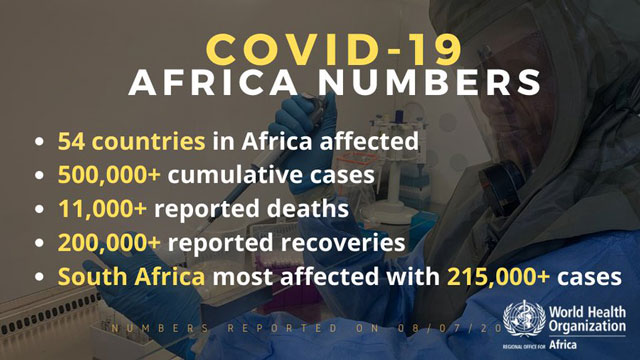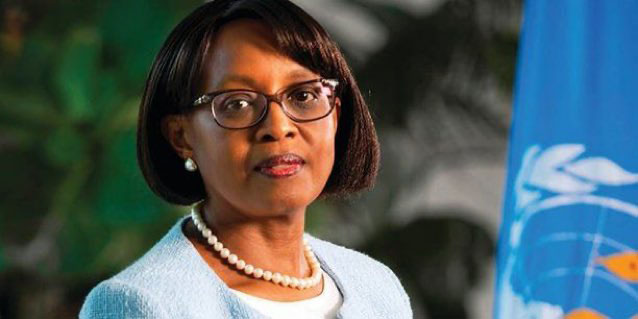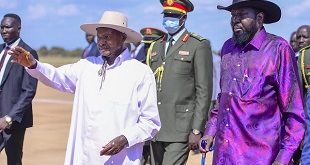
Kampala, Uganda | RONALD MUSOKE | The World Health Organization regional office for Africa has said dozens of African countries have experienced a rapid increase in the number of COVID-19 cases in recent weeks.
In a statement released on July 8, the WHO regional office said COVID-19 infections in Africa have surpassed 500,000 and in less than five months, the pandemic has claimed 11, 959 lives, overtaking the 11,308 lives which were lost during the Ebola outbreak in West Africa between 2014 and 2016.
As of July 8, Africa had registered 509,584 cases of COVID-19; 12,000 people had died from the pandemic while 247,207 patients had recovered according to the Africa Centres for Disease Control and Prevention.
Sub-Saharan Africa registered its first COVID-19 case in Nigeria on Feb. 27, this year. From then, it took 36 days for the region to register 1,000 cases, and then 62 days to move to 100,000 cases. However, 400,000 cases have been registered across the continent since May 30.
The UN agency said cases have more than doubled in 22 countries in the region over the past month with nearly two-thirds of countries experiencing community transmission. Algeria, Egypt, Ghana, Nigeria and South Africa account for about 71% of COVID-19 cases. South Africa alone accounts for 43% of the continent’s total cases.
“With more than a third of countries in Africa doubling their cases over the past month, the threat of COVID-19 overwhelming fragile health systems on the continent is escalating,” said Dr Matshidiso Moeti, the World Health Organization (WHO) Director for Africa.
However, Dr. Moeti said Africa has so far avoided disaster and if countries continue to strengthen key public health measures such as testing, tracing contacts and isolating cases, the pandemic could be slowed down.
The accelerating growth trend, according to WHO is not uniform across the continent, with some countries recording a steady rise in cases, indicating a protracted pandemic.
“Now is not the time to let our guard down and risk health systems becoming overwhelmed. I urge countries to continue strengthening public health measures including testing, contact tracing + clinical care to slow the spread of the virus,” she said.

Eritrea, The Gambia, Mali, Seychelles and Togo are witnessing long doubling times and low growth rates. Seychelles had not experienced a case in nearly two months, but in the past week had dozens of new imported cases, linked to crew members of an international fishing vessel.
Dr. Moeti, however, said there are also some signs of progress as ten countries have experienced a downward trend over the past month. And although Egypt accounts for 15% of cumulative cases, it had seen a decline in the first week of July.
Eighty-eight per cent of COVID-19 infections are among people aged 60 and below, likely due to Africa’s relatively young population. However, the likelihood of dying from COVID-19 rises with increasing age and the existence of co-morbidities, with the risk of death among patients aged 60 years and above being 10 times higher compared with those below 60.
“Communities across the continent have a crucial role to play in controlling the pandemic, especially as countries begin easing lockdowns and opening up their borders,” said Dr Ahmed Al-Mandhari, WHO Director for the eastern Mediterranean region.
“As governments continue to implement public health measures, individuals must remain as cautious and vigilant as ever to protect themselves, their families, and their communities,” Dr. Al Mandhari said.
“Hand washing, mask use, physical distancing and other preventative measures are key to controlling transmission, saving lives, and ensuring that already overwhelmed health systems are not stretched to breaking point.”
Meanwhile, as COVID-19 continues to spread, thousands of health workers have started falling ill. Therefore, equipping and protecting health workers is one of the central pillars of the COVID-19 response, the WHO senior officials said.
The World Health Organization is working to support countries respond to COVID-19 by providing technical guidance, crucial medical equipment and has remotely trained more than 25 000 health workers.
The UN agency has also organized more than 420 shipments of key equipment, including more than 3000 oxygen concentrators, 23 000 GeneXpert diagnostic testing machines and almost four million pieces of personal protective equipment for health care workers.
 The Independent Uganda: You get the Truth we Pay the Price
The Independent Uganda: You get the Truth we Pay the Price




Uganda COVID19 Cases could be more than 500,000
As of the 10th July, the Ministry of health official website reported 1006 Ugandans and 1,216 foreign Truck drivers having tested Positive out of the 221,675 samples. Taking the ratio of the positive cases to the entire sample gives us Infection rate of 1.002%. Assuming proportionate samples at the same infection rate from the entire Ugandan population of 42,729,036, this means that possibly 400,000 People out of the 42 Million people are COVID19 Positive. This figure would place Uganda ahead of the USA which has about 0.99% Infection rate (3.24M infected out of 328.2M).
According to indexmundi.com, Uganda’s population estimate in 2018 was 42,729,036 and Death rate was 9.9 deaths out of every 1000 People. When computed, this translates to 42,3017 deaths annually and 35,251 deaths per month. Considering the same Infection rate, there is a likelihood that 1% were COVID19 carriers hence tallying to 353 deaths per month. This translates to a projected estimate of 1,412 COVID related deaths in the last 4 months of Lock Down. Since many of them do not get the COVID test, it is difficult for the communities to attribute them to a possible influence of COVID 19 infection.
Finally, 221,675 samples have been tested out of the entire population which means only 5 out of 1000 people have been tested. We do not know the status of the 995, could they be clean or asymptomatic? What if there was capacity to test every Ugandan, how many would test Positive?
The population is called upon to continue adhering to the guidelines in place for our own safety. My prayer is for all the stakeholders to continue the fight, God is on our side.
Concerned Ugandan